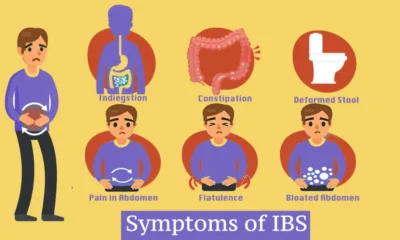


Can Irritable Bowel Syndrome (IBS) cause weight changes? Discover how IBS may lead to either weight loss or weight gain, and what you can do to...



Irritable Bowel Syndrome (IBS) affects millions of Americans, causing debilitating symptoms such as chronic abdominal pain, bloating, diarrhea, constipation, and fatigue.



Hypoglycemia is one of those frustrating conditions where patients often know more about their symptoms than their doctors.



Managing irritable bowel syndrome (IBS) effectively often requires a combination of dietary modifications, lifestyle changes, and stress management.



For millions of people suffering from Irritable Bowel Syndrome (IBS), finding an effective treatment can feel like an endless struggle.



Wondering if IBS and sciatica pain are related? Discover the possible connection between irritable bowel syndrome and sciatic nerve discomfort, and what you can do to...



Noticing mucus in your stool can be alarming—and if you have Irritable Bowel Syndrome (IBS), it may be something you've experienced more than once.



Yogurt is often marketed as a gut-friendly superfood, packed with probiotics that support digestion.



Pseudomonas, particularly Pseudomonas aeruginosa, is a lesser-known but potentially serious bacterium that can contribute to IBS symptoms like abdominal pain, diarrhea, gas, and bloating



Lack of sleep doesn’t just make you tired—it can actually worsen your IBS symptoms.